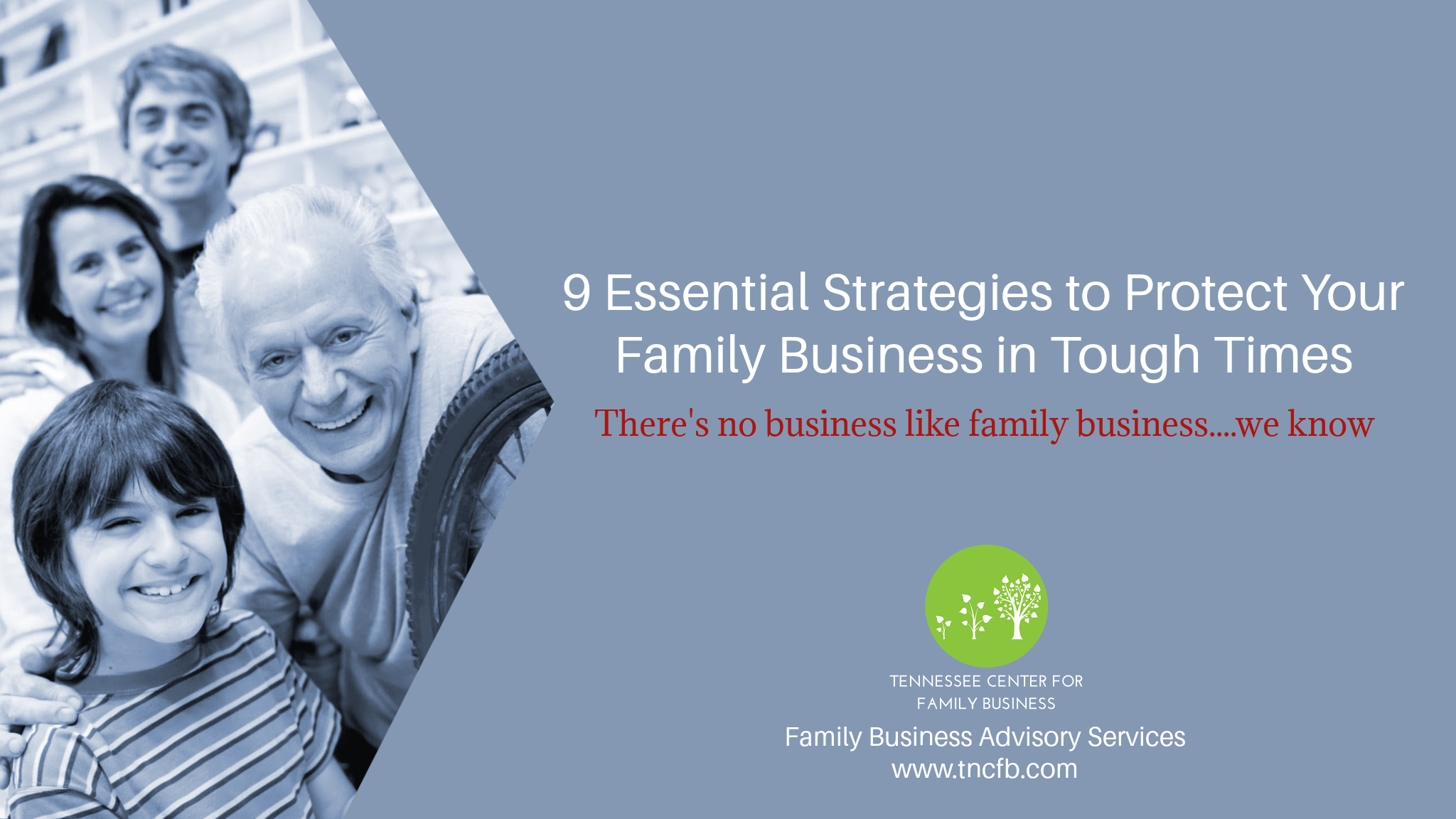The holiday season is a time of joy, celebration, and togetherness, but for families intertwined with a family business, it can also bring unique challenges. The blend of holiday cheer and business responsibilities often leads to increased stress, making it essential to navigate family dynamics with care and intention. I've heard it from more than one Mom asking "Why can't we have a happy holiday family get-together and just get along?" Sound Familiar? By embracing mindfulness techniques and effective communication strategies, family businesses can foster harmonious relationships during this festive time. In the next few minutes we'll offer a few things that you can do right now to navigate family dynamics during your holiday gatherings this holiday season.
Acknowledging the Unique Blend of Joy and Holiday Stress
For families who work together, the holidays can feel like a blessing and a challenge all at once. On one hand, the season brings chances to slow down, share traditions, and make memories. On the other, the pressure of juggling business needs and family expectations can send stress levels soaring. Taking a moment to recognize both sides of that coin helps families set priorities and be honest about what they can manage during this busy time.
Navigating Family Dynamics with Thoughtfulness
Family dynamics often seem to get a little louder during the holidays, especially when business topics mix with personal feelings. It helps to approach these moments with patience and a caring mindset. Open communication is one of the strongest tools you have, so encourage honest conversations about expectations, emotions, and any tension that may bubble up. When families make room for understanding, they can work through challenges and come out stronger on the other side.
The Interwoven Threads: How Family Business Dynamics Shape Holiday Gatherings
As the holidays draw near, families who work together often find themselves balancing the personal and the professional at the same table. These overlapping relationships shape how gatherings unfold, sometimes adding warmth and sometimes adding weight. When families understand how these pieces fit together, they can create a smoother and more enjoyable season. Taking time to look at these dynamics can help everyone show up with a little more grace.
Blurred Lines Between Personal and Professional Relationships
In many family businesses, it’s easy for personal conversations to slide into business talk without anyone noticing. During a holiday meal, you may be tempted to shift from sharing memories to debating business plans, which can stir up tension. Differing opinions about direction or strategy can quickly sidetrack the mood, especially when emotions are already high. Recognizing when those lines start to blur makes it easier to protect both the gathering and the relationships at the center of it.
Common Sources of Holiday Stress
Holiday stress in family businesses often comes from a mix of responsibilities and long-standing conversations. Topics like succession, finances, and tradition can feel especially heavy when everyone is already juggling the demands of the season. These talks matter, but they can also bring up strong emotions at a time meant for joy. Acknowledging these pressures ahead of time gives families a better chance to handle them with care.
The Impact of Year-Round Family Dynamics
How families communicate throughout the year often shows up at the holiday table. When communication has been healthy and open, it becomes easier to have productive conversations during the season. But if issues have been pushed aside, they often find their way back into the room. Using simple tools like listening closely and showing empathy makes it easier to handle these moments and set a more positive tone.
Ultimately, understanding the interplay between family business dynamics and holiday gatherings can help families create a more enjoyable and less stressful experience. By recognizing the unique challenges they face and employing effective communication strategies, family-owned businesses can celebrate the season while strengthening their relationships.
Thoughtful Holiday Planning: Crafting Your "Rules of Engagement"
The holidays offer joy, but they can also bring stress when family dynamics are already layered and complicated. Thoughtful planning helps keep expectations realistic and creates more room for peace. With a few agreed-upon "rules of engagement," families can set a tone that feels calmer and more considerate. These small steps go a long way in supporting harmony during the busiest time of the year.
The Importance of Proactive Holiday Planning
Talking through holiday plans ahead of time can keep misunderstandings from popping up later. When families share what they hope for, whether it is about meals, gatherings, or traditions, it helps everyone feel prepared and included. Clear plans prevent last-minute confusion and keep the focus on enjoying each other’s company. When everyone knows what to expect, the season runs more smoothly.
Establishing Clear, Respectful Boundaries
Setting boundaries may sound formal, but it is really just about honoring each other’s limits. Each person should feel welcome to voice what they need in order to feel comfortable and present. If certain topics feel sensitive or if someone prefers a smaller gathering, sharing that ahead of time helps avoid unnecessary tension. Respecting those boundaries builds trust and sets the stage for healthier interactions.
Preparing for Sensitive Topics
Most families have a few topics that can spark tension if they surface during a holiday gathering. Preparing for how to handle these moments shows care for the relationship. Talking through potential triggers beforehand allows everyone to come in with a plan for redirecting the conversation. When families choose shared interests over divisive subjects, it brings the focus back to connection instead of conflict.
By implementing these strategies, families can create a more mindful and enjoyable holiday experience. Thoughtful planning, clear boundaries, and preparation for sensitive topics can significantly reduce holiday stress and foster stronger family relationships. Embracing these practices allows families to focus on what truly matters during the holiday season: togetherness and love.
Mindful Connections: Communication Strategies and Techniques for Peace
The holidays can stretch family dynamics thin, especially when emotions run high. Simple communication tools and mindfulness practices help bring more calm into the mix. When families choose curiosity and empathy, they create space for better understanding. These choices make a noticeable difference in how the season feels.
Implementing Effective Communication Strategies
Clear communication helps prevent many of the misunderstandings that derail family gatherings. Setting a few ground rules makes it easier for everyone to share openly without feeling interrupted or dismissed. Encouraging each person to speak and be fully heard invites a sense of safety into the conversation. This approach keeps tensions lower and helps families work through disagreements before they grow.
Practicing Mindfulness Techniques
Mindfulness helps anchor your mind when the pace of the holidays picks up. Simple grounding practices, like steady breathing or paying attention to your senses, help bring calm back into the moment. Active listening invites deeper connection and helps you stay present with the people around you.
Choosing Empathy and Curiosity Over Judgment
Empathy and curiosity go a long way in keeping family conversations positive. Instead of assuming the worst, asking gentle questions can open the door to better understanding. Choosing to explore someone’s perspective rather than reacting quickly helps maintain a warm environment. These habits, over time, foster a culture of support.
Honoring Traditions and Nurturing Well-Being Through the Season
The holidays are full of traditions, memories, and opportunities to connect, but they can also bring stress when life and business overlap. With a thoughtful approach, families can honor what they love while easing the pressure. By paying attention to well-being and gratitude, the season becomes more enjoyable. A little intention can make a big difference.
Thoughtfully Approaching Family Traditions
Traditions can bring joy, but they can also feel overwhelming when expectations pile up. Talking as a family about what traditions matter most can help everyone feel seen and included. Adjusting or simplifying certain activities can lift the pressure without losing meaning. Sometimes a smaller or more relaxed celebration is exactly what the family needs!
Prioritizing Self-Care
Taking care of yourself during the holidays is not selfish. It helps you show up with more patience and energy. Simple acts like taking a walk, enjoying a hobby, or sitting quietly for a few minutes can make a big difference. Encouraging each other to rest and recharge helps the whole family feel more balanced.
Cultivating Gratitude and Shared Purpose
Gratitude is a powerful way to strengthen family ties long after the holidays are over. Small words of appreciation or gestures of kindness help everyone feel valued. Working together on a family project or volunteering can also build a shared sense of purpose. These practices deepen connection and reinforce what truly matters.
A Foundation for Lasting Harmony: Beyond the Holiday Season
The holidays can bring out both the best and the most stressful parts of family life. How families handle this season can shape their relationships long after we put away the Christmas decorations. With intention and care, holiday efforts can lay the groundwork for stronger bonds that carry on into the new year.
Managing Holiday Stress for Year-Round Benefits
Approaching the season with mindfulness and open communication helps families reduce holiday stress in meaningful ways. These choices create a more relaxed atmosphere that carries into everyday interactions. By dealing with tension early and talking through issues, families set a healthier tone for the months ahead. Plus, these skills benefit both personal relationships and the family business.
The Importance of Intentional Effort
Strong family relationships grow when people make time for one another. Sharing meaningful conversations, protecting family traditions, and being present all contribute to stronger bonds. These habits create a supportive environment where trust can thrive. And when family members feel connected, collaboration in the business becomes smoother and more rewarding.
In conclusion, managing holiday stress is not simply about surviving the season. With every open conversation, you’re laying the groundwork for lasting harmony in family relationships and business operations. By embracing mindfulness techniques and prioritizing communication, families can foster a supportive environment that lasts well beyond the holidays.
At the Tennessee Center for Family Business, we understand the importance of nurturing family relationships, especially during the holidays. Our commitment lies in providing quality solutions tailored to the unique needs of family-owned businesses. Through transition planning, NextGen coaching, individual and family counseling, and workshops, we equip families with the tools they need to enhance communication, plan effectively, and maintain strong family traditions. By prioritizing mindfulness and intentionality, families can create a joyful holiday experience that honors both their personal and business lives. To schedule a 30 minute, NO COST, call to talk about your specific situation, send us an email to info@tncfb.com to set up a time to talk.
If you want to talk..... We will listen!!!
From our family to yours.....Merry Christmas and a Happy New Year!

















